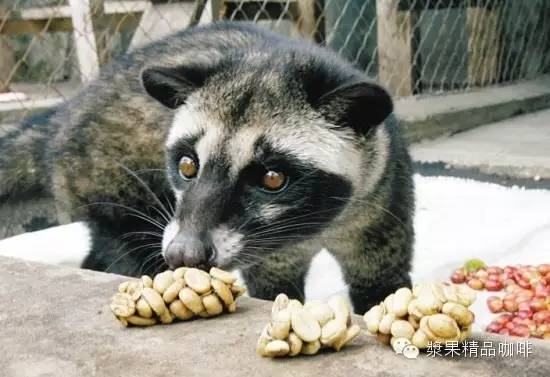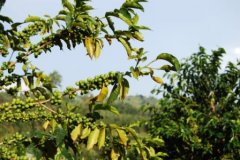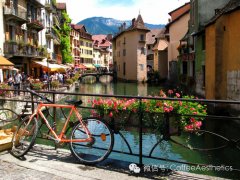Are you still drinking Kopi Luwak?!
Keep you in a narrow cage.
I won't give you the meat and seafood you like.
You are only allowed to eat one kind of fruit
(sometimes the fruit is not necessarily ripe)
Eat until death.
If you are malnourished, you will receive an infusion.
If you make a noise and protest, you will be hit with an electric baton.
Your organ function is slowly failing.
If you fast, use a tube to pour it into your esophagus
Your esophagus and throat are bruised and you can't scream.
In the cage, the space is narrow, and mosquito bites cannot be stopped.
In the cage, five sides are locked, you can only light from one side.
Skip the cold iron railing, you can't survive, you can't die.
His own child was in a cage not far away and suffered the same misfortune.
I hear the cry of my companion every day.
The scary standing animals outside, it must be bad for them to come.
You can hear your heart slowly slowing and weakening.
You can feel your breath getting slower and shorter.
What's going to happen is the end-result.
If you don't want your fate to be so miserable,
Then please don't drink Kopi Luwak!
Many friends came to ask me if I had ever had Kopi Luwak. I said I had. It was a gift from other customers. As far as I know, the output of Kopi Luwak is very small. The civet on the Indonesian island of Sumatra, which we Chinese call the great civet, is a carnivore. Coffee berries are only small after meals, and they can't make a living by eating them. In the early days, local people picked up the droppings of wild civets in the forest, extracted undigested coffee seeds and processed them into raw beans. This kind of coffee beans ferment well because the digestive system of wild civets is strong because they eat meat. But coffee berries know about their dessert. In recent years, in order to profit from this, some ethnic Chinese and locals have wantonly caught musk cats in captivity, and the supposed carnivorous cats can only eat coffee berries.
Friends who have tasted coffee berries know that coffee berries have no pulp, only a thick skin, a layer of pectin outside the beans is slightly sweet, in fact, the beans are hard and astringent, if the berries are not fully ripe, the berries are more bitter. Coupled with the nutrients in coffee berries, civet cats cannot be kept healthy. And civets are caught to eat this every day, refuse to eat will be irrigated, extremely cruel ah. Mantenin in Sumatra is already delicious after semi-washing, so why do you want to do such a gimmick to kill lives?
Therefore, I would like to appeal to those who drink or not to drink coffee to refuse to drink Kopi Luwak and refuse to visit the Kopi Luwak processing factory. No demand, no abuse! Because of the emptiness of their spiritual realm, many rich people in our country take the status of money as the value criterion to measure everything. Chinese in South Asia and Taiwan's Greater China region seized on this weakness and hyped Kopi Luwak at high prices. Recently, I have found more and more middle-aged men with foreign accents, who call themselves Malaysian Chinese, saying that they can get Kopi Luwak and want to sell it in coffee shops. When I saw them, I saw those poor civets struggling to death, taking us mainlanders for fools. They see indifference, promoting the circulation of Kopi Luwak for pecuniary gain.
-the following is the translated text-
This article combines the following three articles with the same point of view:
"the World Society for the Protection of Animals says tourism in Bali to visit Kopi Luwak has increased."
Excerpt from: daily Coffee News May 2, 2016
Web site: http://dailycoffeenews.com/2016/05/02/caged-civet-coffee-tourism-on-the-rise-in-bali-says-world-animal-protection/
"the world's most expensive coffee comes from animal cruelty."
Excerpt from: the Guardian, UK, 19 November 2012
Web site: http://www.theguardian.com/environment/2012/nov/19/civet-coffee-abuse-campaigners
"Tourism and expensive coffee demand connive at enslaved animals."
Excerpt from: world Society for the Protection of Animals April 29, 2016
Web site: http://www.worldanimalprotection.ca/news/civets-enslaved-growing-demand-tourism-and-luxury-coffee

Kopi Luwak (Kopi Luwak), known as the most expensive coffee in the world, is made from feces. Through the stomach acid in the civet's digestive system, the raw coffee beans are fully fermented. The taste is smooth, delicate and caramel is sweet and delicious. It is respected by countless coffee fans around the world, but it is condemned by animal conservationists.
Kopi Luwak, Indonesia's local name is Kopi Luwak, the English name is Palm Civet Coffee, that is, Palm Musk Coffee. This civet is small and lives in the primeval forests of South Asia.
Kopi Luwak raw beans are exported at $230per pound. Kopi Luwak is a registered trademark and has a branch in London. A Kopi Luwak costs £70.
A reporter from the Guardian visited the Kopi Luwak aquaculture and processing plant, where the environment was simple and dirty. He saw a mother musk cat alone in a cage. The two babies she had just given birth to a few weeks ago were placed in cages not far away from her and with less room for movement. They could not be breastfed since childhood. In the baby's cage, there was a bowl of coffee berries, both of which were raw and ripe. If you don't eat, you will be hungry.
According to the World Animal Protection Organization, due to the world's increasing tourism and consumer demand for Kopi Luwak, there are more and more Kopi Luwak farms in Sumatra, including not only civets, but also a kind of animal called "bear beaver", whose English name is binturong, has also been brutally caged. They are tortured day and night, forced to eat coffee berries, or irrigated. At present, officials believe that civets and civets are on the Red list of Endangered species and are also at the top of the list.
The civet is a gregarious wild animal that often haunts in groups, hunting and feeding together. That's why, in the Kopi Luwak factory, civets are kept in separate cages because they are United. In order to get them to give up resistance, the factory owner made the cage so small that he could not stretch. At present, there are thousands of musk cats suffering in Indonesia, and we should not base our attention on their suffering.
According to the World Organization for the Protection of Animals, there are 16 Kopi Luwak farms in Bali alone for visitors to visit and buy coffee. Their research report also shows that only 2 of the 16 farms only allow visitors to watch the Kopi Luwak process, while the other 14 farms are selling Kopi Luwak, and they are selling well.
Dr Neil D'Cruze, a wildlife researcher at the World Conservation Organization, said: "when tourists see the civets in the cages, they only think of where they can buy the most authentic Kopi Luwak. Sadly, many tourists don't care about the fact that civets are abused and even take pictures and post them on Facebook to show off.
To make matters worse, because of the savage nature of civets, the farm amputated their limbs in order to control them and imagine how scared they were. It was a real hell. For civets, it is simply physical and psychological destruction. They have no cover at all, and they get wet when it rains. The owners of many Kopi Luwak farms are uneducated. They only know how to produce coffee but do not know how to take care of small animals. As a result, civets die frequently.
In 2013, Kopi Luwak was removed from the shelves of at least 13 world-famous brand stores, including British department stores Harrods and Selfridges, as well as Simon L é velt in the Netherlands, following a joint appeal from world animal conservationists.
Here, the World Animal Protection Organization urges "do not eat Kopi Luwak" and choose the words "Cage-Free" printed on the package to buy even if you want to eat it.
Important Notice :
前街咖啡 FrontStreet Coffee has moved to new addredd:
FrontStreet Coffee Address: 315,Donghua East Road,GuangZhou
Tel:020 38364473
- Prev

Why is the altitude of coffee plants so important?
Boutique coffee (specialty coffee) is also called specialty coffee selection coffee. It refers to coffee made from a small number of raw beans with excellent taste grown in an ideal geographical environment. Depending on the special soil and climatic conditions in which they grow, they have outstanding flavor. After strict selection and classification, this kind of coffee is hard in texture, rich in taste and stylish.
- Next

French coffee culture
French coffee does not seem to stress the taste, but the environment and atmosphere, most do not want to drink alone behind closed doors, but to join in the fun outside, even if the price of a small cup is enough to cook a pot at home. The French drink coffee slowly, taste carefully, read books and newspapers, talk loudly, and soak for most of the day. Because of this traditional coffee culture, France lets people stop and drink coffee
Related
- Unexpected! Ruixing Telunsu lattes use a smoothie machine to foam milk?!
- % Arabia's first store in Henan opens into the village?! Netizen: Thought it was P's
- Does an authentic standard mocha coffee recipe use chocolate sauce or powder? Mocha Latte/Dirty Coffee/Salty Mocha Coffee Recipe Share!
- What is the difference between Vietnam egg coffee and Norway egg coffee? Hand-brewed single product coffee filter paper filter cloth filter flat solution!
- What is the difference between sun-cured and honey-treated coffee? What are the differences in the flavor characteristics of sun-honey coffee?
- How to make Italian latte! How much milk does a standard latte use/what should the ratio of coffee to milk be?
- How to make butter American/butter latte/butter Dirty coffee? Is hand-brewed coffee good with butter?
- Is Dirty the cold version of Australian White? What is the difference between dirty coffee/decent coffee and Australian white espresso?
- Relationship between brewing time and coffee extraction parameters How to make the brewing time fall to 2 minutes?
- Got entangled?! Lucky opens a new store, Mixue Ice City, and pursues it as a neighbor!

